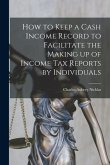This book explores the role of the welfare state in the overall wealth and wellbeing of nations and in particular looks at the American welfare state in comparison with other developed nations in Europe and elsewhere. It is widely believed that the welfare state undermines productivity and economic growth, that the United States has an unusually small welfare state, and that it is, and always has been, a welfare state laggard. This book shows that all rich nations, including the United States, have large welfare states because the socialized programs that comprise the welfare state-public education and health and social insurance--enhance the productivity of capitalism. In public education, the most productive part of the welfare state, for most of the 19th and 20th centuries, the United States was a leader. Though few would argue that public education is not part of the welfare state, most previous cross national analyses of welfare states have omitted education. Including education has profound consequences, undergirding the case for the productivity of welfare state programs and the explanation for why all rich nations have large welfare states, and identifying US welfare state leadership. From 1968 through 2006, the United States swung right politically and lost its lead in education and opportunity, failed to adopt universal health insurance and experienced the most rapid explosion of health care costs and economic inequality in the rich world. The American welfare state faces large challenges. Restoring its historical lead in education is the most important but requires investing large sums in education, beginning with universal pre-school and in complementary programs that aid children's development. The American health insurance system is by far the most costly in the rich world, yet fails to insure one sixth of its population, produces below average results, crowds out useful investments in children, and is the least equitably financed. Achieving universal coverage will increase costs. Only complete government financing is likely to restrain long term costs. In memory of Robert J. Lampman Colleague, Co-author, Friend and Mentor
Bitte wählen Sie Ihr Anliegen aus.
Rechnungen
Retourenschein anfordern
Bestellstatus
Storno









